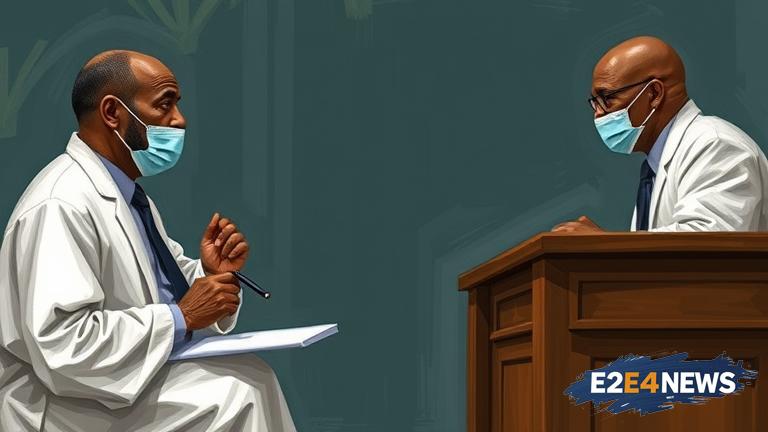A recent court case in South Africa has brought attention to the safety of circumcision devices used in the country. The case, which was filed against the National Treasury, challenges the government’s decision to procure and distribute these devices without proper testing and evaluation. The devices in question are used for male circumcision, a procedure that is widely practiced in South Africa as a means of reducing the risk of HIV transmission. However, concerns have been raised about the safety and effectiveness of these devices, with some reports suggesting that they may cause serious harm to patients. The court challenge was launched by a group of activists and healthcare professionals who are seeking to have the devices banned until their safety can be guaranteed. They argue that the government has a responsibility to ensure that all medical devices used in the country are safe and effective, and that the current devices do not meet this standard. The case has sparked a heated debate about the role of government in ensuring public health and safety, with some arguing that the government is not doing enough to protect its citizens. Others have argued that the devices are a vital tool in the fight against HIV, and that banning them would have serious consequences for public health. The court will now have to decide whether the government’s decision to procure and distribute the devices was lawful, and whether the devices are safe for use. The outcome of the case is likely to have significant implications for public health policy in South Africa, and could potentially impact the use of similar devices in other countries. The case has also highlighted the need for greater transparency and accountability in government decision-making, particularly when it comes to public health. The activists and healthcare professionals who launched the court challenge are seeking to have the government held accountable for its actions, and to ensure that the rights of patients are protected. The use of circumcision devices is a highly controversial topic, with some arguing that they are a vital tool in the fight against HIV, while others argue that they are not effective and may even cause harm. The court case has brought attention to the need for more research and evaluation of these devices, and for greater scrutiny of government decision-making. The safety and effectiveness of circumcision devices is a critical issue, particularly in countries with high rates of HIV transmission. The World Health Organization has recommended male circumcision as a means of reducing the risk of HIV transmission, but has also emphasized the need for careful evaluation and monitoring of the procedure. The court case in South Africa has highlighted the need for governments to take a more proactive approach to ensuring public health and safety, and to prioritize the rights and well-being of patients. The outcome of the case will be closely watched, both in South Africa and around the world, as it has the potential to impact public health policy and practice. The case has also sparked a wider debate about the role of government in regulating medical devices, and the need for greater transparency and accountability in decision-making. The use of circumcision devices is just one example of the many challenges facing public health systems in South Africa, and the court case has highlighted the need for a more comprehensive approach to addressing these challenges. The government has a responsibility to ensure that all medical devices used in the country are safe and effective, and that patients have access to high-quality care. The court case has brought attention to the need for greater investment in public health, and for a more proactive approach to addressing the social and economic determinants of health. The safety and effectiveness of circumcision devices is just one part of a broader conversation about public health and safety, and the need for governments to prioritize the well-being of their citizens. The case has highlighted the importance of activism and advocacy in holding governments accountable for their actions, and in promoting the rights and interests of patients. The outcome of the case will have significant implications for public health policy and practice, both in South Africa and around the world.
